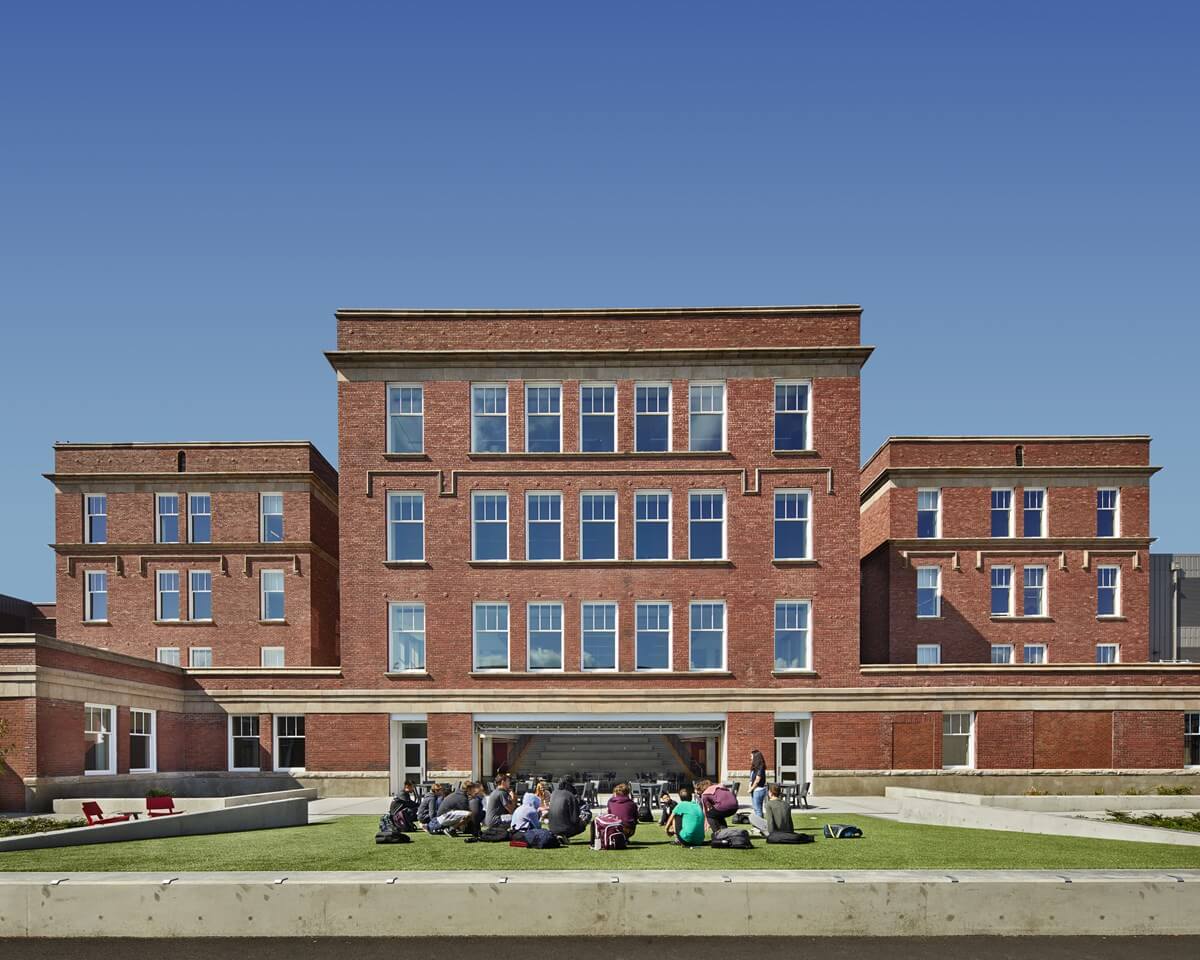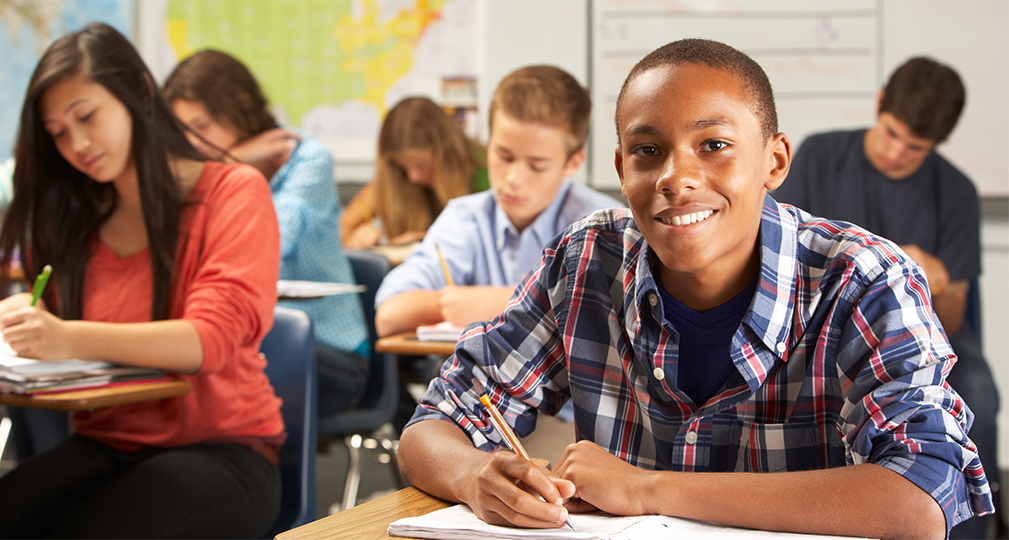Comprehending the Value of Schools in Kid Development and Area Development
Schools act as pivotal organizations for kid growth and neighborhood development, offering environments where scholastic achievements are complemented by the cultivation of social skills and direct exposure to varied viewpoints. These academic setups not only promote vital reasoning and effective communication however likewise foster compassion via collective projects. Institutions' interaction with regional areas through service-learning campaigns reinforces the bond between families and educational establishments. This cooperative relationship highlights the significance of institutions in nurturing active citizenship and lifelong learning habits. Nevertheless, what are the particular mechanisms by which these institutions achieve such extensive effects?
Academic Accomplishment
Academic achievement offers as a keystone of youngster development, providing the foundation upon which future learning and success are developed. Colleges play an essential duty in cultivating this academic development, using structured environments where youngsters can get vital understanding and cognitive skills. Standardized educational program make sure that pupils gain efficiency in core topics such as mathematics, science, and language arts, which are essential for both college and expert opportunities.
In addition to giving basic academic skills, institutions additionally cultivate critical thinking, analytic capacities, and intellectual inquisitiveness. These cognitive competencies are crucial for browsing complex real-world scenarios and adjusting to the ever-evolving demands of the contemporary workplace. Educators, as facilitators of knowing, use varied pedagogical strategies to cater to diverse knowing styles, therefore making best use of specific pupil potential.
Moreover, scholastic success is closely connected to self-esteem and inspiration. Kids that experience scholastic accomplishments are more probable to create a positive self-concept and a lifelong enthusiasm for learning. Colleges likewise use different resources, such as collections and innovation, which further improve the instructional experience and prepare students for a technologically innovative society.
Social Skill Advancement
Beyond scholastic success, the function of institutions in social ability growth is indispensable. Schools function as a key place for kids to learn and exercise vital social skills such as participation, problem, and interaction resolution. In the structured environment of a class, trainees communicate with peers, teachers, and other college personnel, using many chances to create these critical capabilities.
Reliable social skill advancement in institutions is promoted via group tasks, collective projects, and extracurricular programs. These communications help pupils understand social standards, develop empathy, and foster a sense of area. Team jobs show students how to function together in the direction of a typical goal, listen to different point of views, and navigate disputes constructively.

The farming of social skills during school years lays a foundation for future personal and professional connections. Save Temecula Schools. As trainees grow, the ability to properly collaborate and interact becomes significantly vital, underscoring the institution's crucial function in all natural youngster growth
Exposure to Variety
Direct exposure to variety in colleges is basic to fostering an inclusive attitude and broadening trainees' point of views. Schools offer as a microcosm of the more comprehensive culture, and running into varied cultures, languages, and socioeconomic backgrounds within this environment furnishes pupils with necessary abilities for browsing an increasingly globalized world. This direct exposure motivates empathy, decreases prejudices, and promotes shared respect among peers.
Varied class also improve cognitive and social advancement. Study suggests index that pupils that engage with peers from different backgrounds exhibit much better problem-solving skills and creativity. They learn to appreciate different point of views, which improves classroom discussions and fosters an extra vibrant learning experience. Additionally, this understanding of variety prepares trainees for future work environments that value multicultural skills.

Neighborhood Involvement
The benefits of varied classrooms extend beyond the college wall surfaces, fostering a solid feeling of community interaction amongst pupils. By engaging with peers from different cultural, socioeconomic, and ethnic backgrounds, students obtain a more comprehensive viewpoint and a recognition for diversity. This exposure urges them to come to be energetic citizens that agree to contribute favorably to their areas.
Schools that emphasize area involvement typically include service-learning tasks, which permit trainees to address real-world troubles while applying scholastic abilities. These jobs not just improve students' understanding of their coursework however also infuse a sense of obligation and compassion. Furthermore, collaborations between colleges and local companies provide pupils with chances to take part in community occasions, better strengthening their role as aggressive area members.
In addition, adult and community involvement in schools strengthens the bond this post between instructional organizations and the communities they offer. When schools open their doors to neighborhood events, workshops, and volunteer chances, they create a collaborative setting that profits all stakeholders. This common assistance system ensures that pupils obtain alternative advancement, preparing them to come to be well-shaped people who value and contribute to their communities. With these efforts, institutions play a crucial duty in nurturing area engagement and fostering social growth.
Lifelong Learning Behaviors
Establishing long-lasting understanding habits is necessary for a child's continual development and adaptability in an ever-changing world. Schools play an essential function in instilling these practices by producing a setting that promotes curiosity, vital reasoning, and a love for knowledge. Through extracurricular activities and varied educational programs, instructors urge trainees to discover various subjects, analyze details critically, and use their discovering to real-world circumstances.

In addition, institutions give an organized environment where kids can create self-discipline and time management abilities, both of which are critical for continuous learning. By emphasizing the relevance of establishing objectives, reviewing progress, and adapting techniques, schools prepare pupils to browse the intricacies of grown-up life, ensuring they continue to be long-lasting learners and factors to society.
Final Thought
In conclusion, institutions are important in promoting kid advancement and neighborhood development by providing settings helpful to academic achievement, social skill advancement, and exposure to variety. Inevitably, institutions grow long-lasting knowing behaviors, furnishing More hints individuals with the essential expertise and skills to add favorably to society.
In the organized environment of a class, pupils interact with peers, instructors, and various other institution team, providing countless chances to establish these important capacities.
In significance, exposure to diversity within schools not just enriches private pupils but likewise reinforces the social fabric of the area as a whole.
The benefits of diverse classrooms expand beyond the school walls, cultivating a solid sense of community interaction among pupils.Schools that highlight neighborhood interaction often include service-learning jobs, which permit pupils to address real-world problems while applying academic abilities. Partnerships between institutions and neighborhood organizations offer students with possibilities to take part in area occasions, additionally solidifying their duty as positive area members.